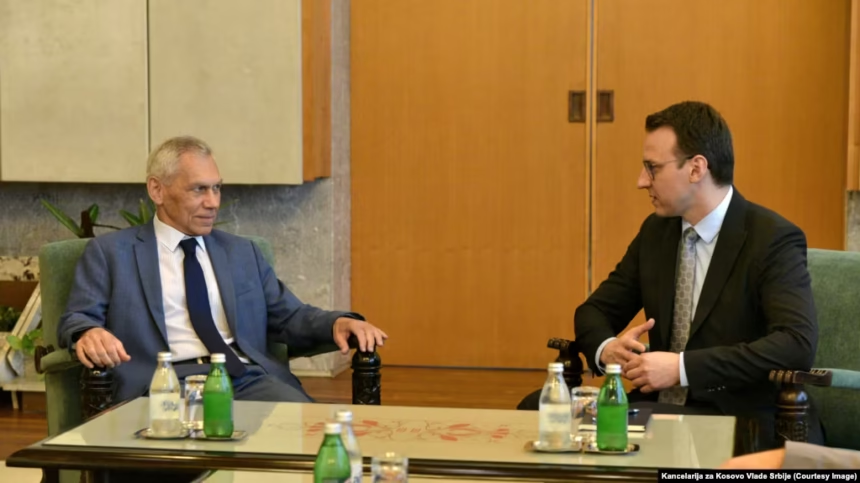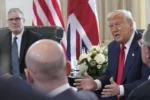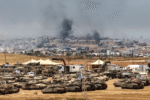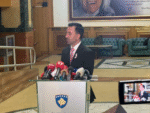Petar Petković, the Director of the Serbian Government’s Office for Kosovo, met on Monday with Russia’s Ambassador to Serbia, Aleksandar Bocan-Harchenko, to discuss the recent arrest of Igor Popović by authorities in Kosovo.
In an official statement, Petković expressed what he described as Belgrade’s “deep concern” over the detention of Popović, who serves as his assistant at the Office for Kosovo. He called the arrest “an arbitrary and politically motivated decision” driven by ethnic grounds rather than the rule of law.
Popović was detained on July 18 while returning from Hoqë e Madhe, where he had attended a commemoration marking the anniversary of the killing of Serbs in the Rahovec municipality. During his speech, Popović described the Kosovo Liberation Army (KLA) as a “terrorist organization”, which local authorities cited as grounds for his arrest. He was later stopped by Kosovo Police at the Bërnjak border crossing and placed in one month of pre-trial detention.
Petković accused Prishtina of escalating tensions and undermining the EU-mediated dialogue that has been ongoing since 2011 to normalize relations between Serbia and Kosovo. “By arresting my assistant Igor Popović, Prishtina continues with actions that escalate tensions, create crises on the ground, and directly sabotage the dialogue process,” Petković said.
He emphasized that Serbia continues to rely on Russia’s diplomatic backing in international organizations where Belgrade opposes the recognition of Kosovo’s independence.
The arrest has sparked strong reactions in Belgrade. Serbia’s Foreign Minister, Marko Gjurić, also met with Ambassador Bocan-Harchenko on July 24 to raise the issue and called for Popović’s immediate release. Serbian officials have labeled the detention a “political decision” and are demanding guarantees for the safety of Serbian missions operating in Kosovo.
In response, Kosovo’s Acting Minister of Internal Affairs, Xhelal Sveçla, defended the arrest, stating that Kosovo will not tolerate insults or the distortion of the country’s wartime history. Sveçla emphasized that the KLA was a key politico-military force that fought for Kosovo’s liberation from Serbian rule during the 1990s.
Over 13,000 civilians were killed during the Kosovo War (1998–1999), and more than 1,600 people — mostly ethnic Albanians — remain missing to this day. Kosovo’s justice system has prosecuted several individuals for war crimes committed during the conflict. However, Prime Minister Albin Kurti recently underscored that Serbia has yet to issue an official apology for war crimes committed during its military operations in Kosovo.







